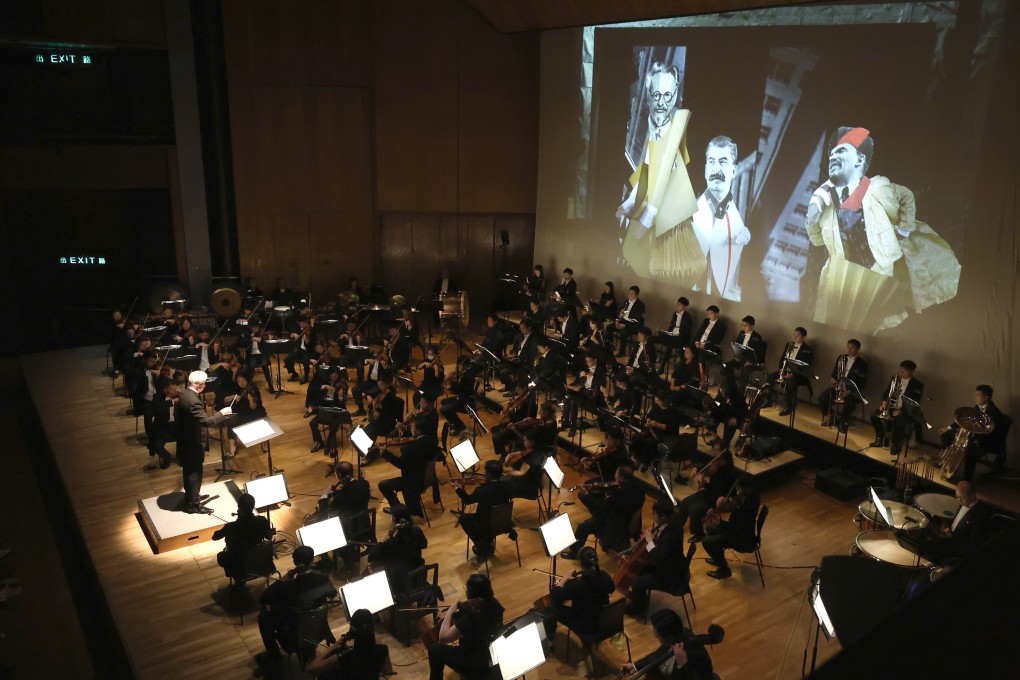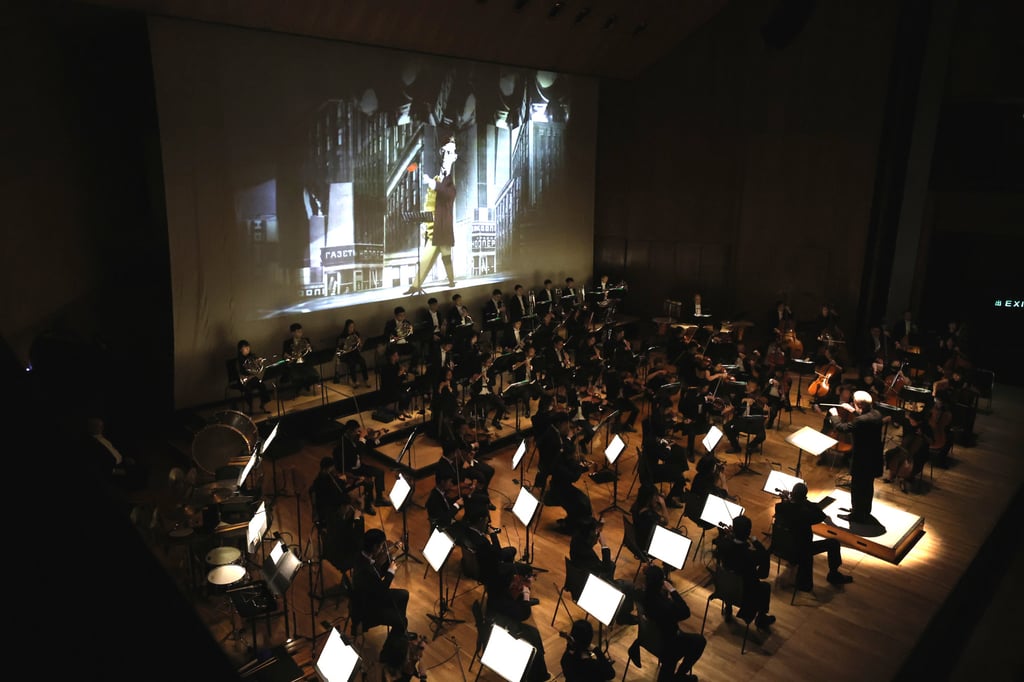Review | Artistic inspiration versus propaganda: William Kentridge’s film to accompany Shostakovich’s 10th Symphony channels composer’s struggle with Stalinism
- A creative reaction by one artist to another, Oh, to Believe in Another World succeeds in illuminating the composer’s relationship with Soviet leader Stalin
- Kentridge’s film was inspired by Shostakovich’s Symphony No 10, and Hong Kong Sinfonietta under music director Christoph Poppen play it with nervous intensity

Technically speaking, it’s difficult to describe anything in William Kentridge’s Oh, to Believe in Another World, which closed Hong Kong’s New Vision Arts Festival, as “new”.
The same techniques employed throughout the film – collage, sculpture, puppetry, stop-motion animation and drawing (with much erasure and redrawing) – have been strongly identifiable characteristics of the artist’s career for decades.
So, too, has been Kentridge’s drawing of inspiration from classical music, particularly works for the voice.
His set designs for Mozart’s opera The Magic Flute and Shostakovich’s The Nose have become separate exhibitions in their own right. In his 2014 visualisation of Schubert’s song cycle Die Winterreise, Kentridge disregards the poems’ original story and setting, delving instead into his own childhood memories of South Africa, where he first heard these songs.
With Oh, to Believe in Another World, he chose a piece of music without words: Shostakovich’s Symphony No. 10 in E minor.

Commissioned and premiered by the Lucerne Symphony Orchestra in 2022 – and accompanied on November 18 and 19 by the Hong Kong Sinfonietta under its music director, Christoph Poppen – Oh, to Believe in Another World sets out to illuminate the complicated relationship between the composer and Soviet leader Joseph Stalin, spanning not just his tyrannical rule but the prelude to it and events after his death in 1953.
